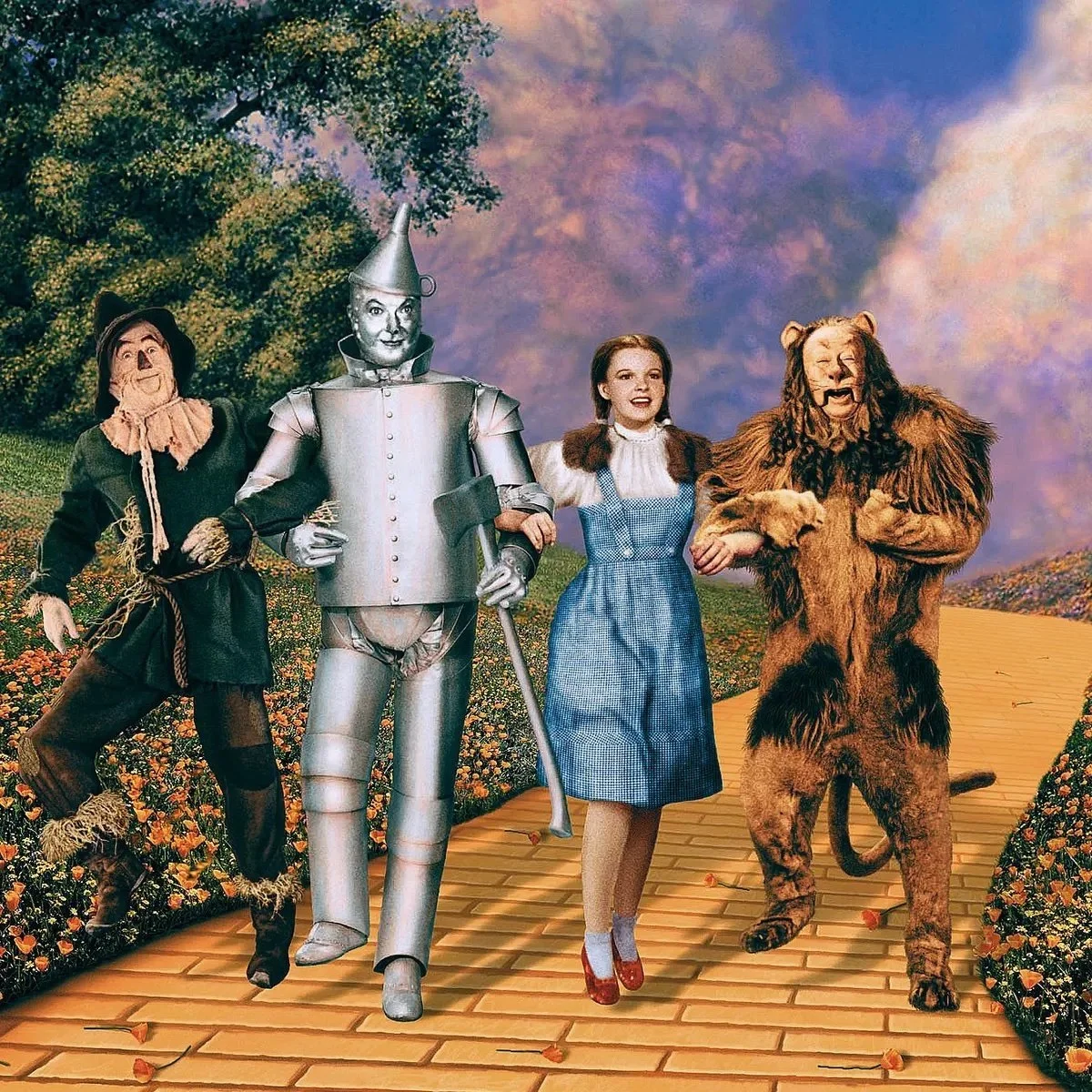The Hero’s (or Heroine’s) Journey
Dorothy, of the Wizard of Oz, wanted to keep her dog, Toto, safe from the nasty neighbor down the road. As this drama unfolded, a tornado swept Dorothy, her house, and Toto to a strange and wondrous land called Oz. There she found two wicked witches, one of whom looked curiously like her neighbor, and a whole host of companions who joined her on her search to find the great wizard of Oz, who everyone thought had the power to help Dorothy go home. Surprisingly, Dorothy discovered she had her own power to go home but not until she overcame the wicked witches, enlisted the help of the good witches, discovered the truth about the ”all powerful” Oz, and learned important life lessons from the Scarecrow, Tin Woodsman, and Cowardly Lion.
Archetype
The Hero’s Journey is a mythical archetype found in ancient classic literature (The Odyssey), modern classics (To Kill a Mockingbird ), adventure movies (Star Wars), and children’s books and movies (Harry Potter). Author Joseph Campbell discovered an intricate framework embedded in the hero’s journey, used archetypically by authors centuries before Campbell was born. For our purposes, the protagonist leaves home in response to some inner calling, encounters obstacles and challenges, sometimes external dragons to be slayed, and sometimes internal fears and feelings of inadequacy to be overcome. At times, it seems like the hero or heroine will not make it. Yet they persevere, vanquish evil, establish good, and learn new things about the world and about themselves in the process. Returning home wiser than when they left, some say that they “arrive where they started and know the place for the first time.” *
*The Hero’s Journey: How Educators Can Transform Schools and Improve Learning by John L. Brown and Cerylle A. Moffett.
We Are the Heroes and Heroines
You and I are the heroes and heroines of our own life journeys. We have been called out of denial and dissociation to discover the truth about ourselves and the people who hurt us. Like Dorothy and her companions, we learn the people we put on pedestals were often paper tigers, or much worse. We slay cruel and devastating dragons over and over again in our triggers, our flashbacks, and our therapy sessions until we’ve finally let out their steam. We bond with our parts who, like Dorothy’s companions, become our fast friends, despite their flaws, and in celebration of their strengths. It may feel, at times, like we’ll never make it home, or to the place of peace our hearts are longing for.
Home is Our Authentic Selves
I don’t need to tell you that our hero’s journeys aren’t the fluff of children’s stories or the TV dramas that resolve themselves in one season. Our journey’s are lifelong and arduous, made of real betrayal and unbelievable cruelty. Like Dorothy, we often can’t see the forest for the trees but, for us, that’s because pain, confusion, and feelings of desperation take up all our psychic space. We are not alone in this predicament — Dorothy had no idea how she would survive, so she put her hope in Oz who represented the shiny things outside of ourselves that ultimately have little value. Until we embrace our deep inner work with relentless commitment, we will follow the Oz’s of this world as well. Therapeutic healing means we recognize that our answers are not outside of us, but inside of us. Unfair as it may seem, we have to battle our inner demons until we get to the core and beauty of who we are. Home for Dorothy was in Kansas. Home for us is in our authentic selves.
Like the heroes and heroines in the archetypal hero’s journeys, we will make it home. It is our destiny. Believe the hero and heroine in us. Already, we are coming close to where we started. Already, we are beginning to know the place for the first time.
Self-Care
Write a paragraph about your hero’s journey. Where are you on the trek? Are you slaying dragons and, if you are, who or what are they? Are you rounding a corner? If so, what new things lie ahead? Imagine yourself as Dorothy or another character in literature who makes it home. What does home look like for you? Can you let yourself believe that you will make it there? What life lessons have you already learned? Embrace them and let them help you navigate the next challenge on your journey.
Memoir for Dissociative Writers
A beginners, six-week Memoir Class for dissociative writers will be offered in September and October. Potential participants are encouraged to speak with their therapists before signing up. Some sense of inner stability is helpful when diving into this class. For more information or to register, go to the Dissociative Writers website by clicking here.
Creative Healing: An Anthology of Poems, Prose, and Art can be downloaded for free on the Dissociative Writers website by clicking here . Staying in the Room: Managing Medical and Dental Care When You Have DID by Cathy Collyer and Crazy: Reclaiming Life from the Shadow of Traumatic Memory by Lyn Barrett can be purchased from Amazon by clicking on the titles. Support your dissociative writers!
🕊
A hero is someone who,
in spite of weakness, doubt or not always knowing the answers,
goes ahead and overcomes anyway.
~ Christopher Reeve
Lyn


